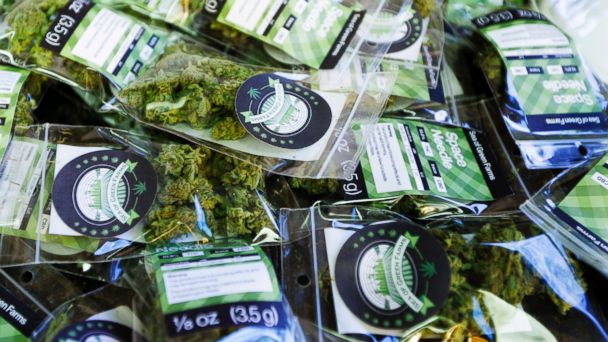Driving While Stoned: Congress Searches for a Test Standard

(Ted S. Warren/AP Photo)
With the clock ticking down to the congressional recess and amid a day of high drama over how to handle the border crisis, the House of Representatives made time for another matter: "Planes, Trains and Automobiles: Operating While Stoned."
That was the title of a hearing held today by the House Oversight and Government Reform Subcommittee on Government Operations, which was reviewing the federal government's response to state-level marijuana legalization as it pertains to transportation policy.
Colorado Combats Driving While Stoned With Ads, Police Training
Driving Stoned: Safer Than Driving Drunk?
The High Road: Driving Experiment Fuels Marijuana Legal Debate
The consensus of experts who testified before the committee was that operating a vehicle under the influence of drugs poses a clear danger to the public, but lawmakers expressed concern that methods to test for marijuana are not up to date - and neither is the science.
"We don't have a uniform standard," said Rep. Gerry Connolly, D-Va. "The variable is much greater than that of other controlled substances such as alcohol. We actually can't scientifically pinpoint levels of impairment with any accuracy."
"We would all concede there's some impairment for some period of time, but it's very variable, and we're not quite sure yet - sure enough to adopt a uniform standard," he added.
Testing vehicle operators for marijuana is not quite as simple as using a breathalyzer to test for alcohol, officials noted.
Dr. Jeff Michael, associate administrator at the National Highway Traffic Safety Administration, explained that marijuana does not appear to have a distinct impairment threshold - such as the .08 percent blood alcohol content that a breathalyzer can test for. The level of impairment from THC, the active ingredient in marijuana, is much more variable than alcohol, making it harder to gauge, he said.
"Beyond some broad confirmation that high levels of THC are associated with higher levels of impairment, a more precise association of THC levels and degrees of impairment are not yet available," Michael said during the hearing.
Rep. John Mica, R-Fla., the chairman of the subcommittee, highlighted a device capable of detecting marijuana within four hours of entering the system. Mica even brought the device into the hearing room.
"I was gonna swab the panelists," the congressman quipped, "but I thought I wouldn't do that today."
"You can take a swab with this - and it can tell you if anyone has used marijuana within four hours," Mica noted. "But again, we have no standard. We have no acceptable test. And we have no way of telling if people are impaired. Most of the data we're getting right now is from, again, fatalities."